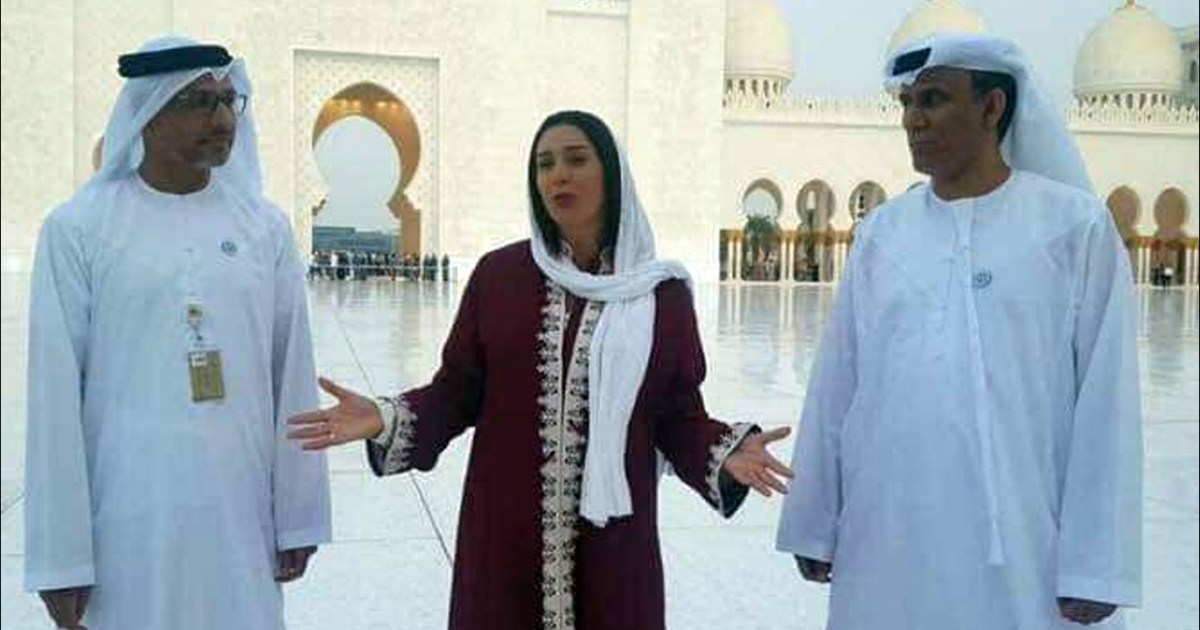"A decade ago, any public praise for Israel - no matter how light - was considered heretical throughout the Arabian Peninsula, but these days, a restaurant in Burj Khalifa in Abu Dhabi offers food prepared in accordance with Jewish law, and many Jews working in a country gather The UAE publicly every Friday night to pray at a nearby synagogue. "
With these words, Jonathan Friesiger, a journalist specializing in Gulf affairs and one of the authors of a new report issued by the Atlantic Council in Washington, expressed the growth of relations between Israel and the Arab Gulf states.
At a symposium held by the Atlantic Council in Washington on the occasion of the issuance of the report, Professor Judit Bahgat, a professor at the National Defense University and one of the authors of the report, spoke about "Israel’s serious pursuit for many years to establish good relations with the Gulf states. Mainly due to the strategic changes that the Middle East witnessed during the last decade. "
The factors of the Gulf-Israeli rapprochement
The report referred to three factors that accelerated the Israeli-Gulf rapprochement, foremost among which are the common concerns about Iran's nuclear ambitions and Iran's interference in the region, and this was compounded by the increasing uncertainty about the United States' security commitment to the Gulf region, and then the desire of the oil-rich Arab countries In accessing Israeli technology. The spread of the new Corona epidemic and related concerns have also caused rapprochement between the two parties, according to the report.
For his part, believes that the United States welcomes the growth of Israel’s relations with the Gulf states, but it is not the driving force behind this warmth in the relations of the two parties, as Iran is the direct driver for this.
During an interview with Al Jazeera Net, Roche stated that Washington "has failed over the years to bring the two sides closer, and the American pressure on the Gulf states has not succeeded in pushing them to move towards Israel, but the parties' awareness of the Iranian threat is what played an important role in facilitating this rapprochement."
Friesiger noted that "it is widely known that Israeli hospitals treat many of the wealthy Gulf Arabs who did not want to travel long to Europe or the United States."
The report also referred to the announcement of the UAE group 42 to sign two memoranda of understanding with the Israeli companies "Raphael" and "EAE" to combat the emerging corona virus.
A limited role for Washington
For his part, David Mac, the former ambassador and expert on Middle East affairs at the Atlantic Council of the Island Net, stressed that many relations between the two sides "have been established since the Madrid Conference on Middle East Peace, which was held in 1991 when Washington took advantage of its global position to gather Arabs and Israelis, and these Relations have witnessed ups and downs, but they have continued between the two parties, as they see both as beneficial according to their calculations. "
Ambassador Mac believes that "Washington plays an important role in these relations, which guarantees it its continued regional influence at a time when its efforts to achieve Middle East peace between Israel and the Palestinians fail."
The report pointed to a future challenge represented by the reaction of the Gulf states to "the Israeli Prime Minister Benjamin Netanyahu's affirmation of the annexation of 30% of the West Bank lands, and how the Gulf countries do not appear to be abandoning the Palestinian people."
The report recommends taking several steps to support the rapprochement of the two parties, the most important of which are:
حتى Even in the absence of diplomatic relations, Gulf countries should define new ways for Israel to participate in scientific activities and sporting events. Examples include joint research on the Corona virus, the Dubai Expo 2021 exhibition, the 2022 FIFA World Cup in Qatar, and participation in water desalination projects in the Sultanate of Oman.
القادة American leaders should not abandon efforts to mediate an Israeli-Palestinian peace agreement, as this facilitates efforts to normalize Gulf-Israeli relations, and Gulf states must commit to investing in Palestinian infrastructure and Palestinian commercial projects.
التعاون Academic cooperation between the Gulf states and Israel should be encouraged, especially in the areas of health care, cybersecurity, water conservation and interfaith dialogue between Muslims and Jews.
In the end Fraseger pointed out that "the UAE is driving this convergence of power, not Saudi Arabia as many believe, the UAE has one vote pushes in that direction on the contrary, Saudi Arabia, there are still great between the positions of difference Crown Prince Mohammed bin Salman and his father, the King of the issue of rapprochement with Israel".

